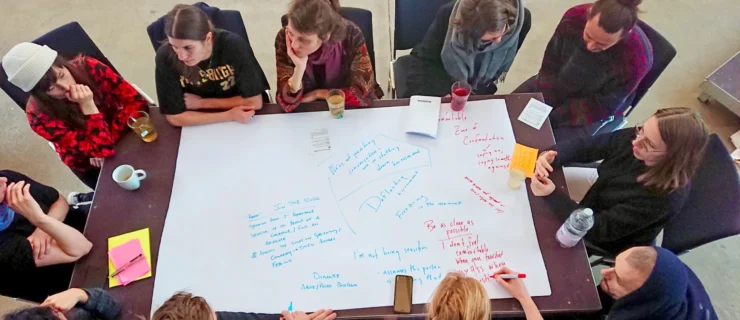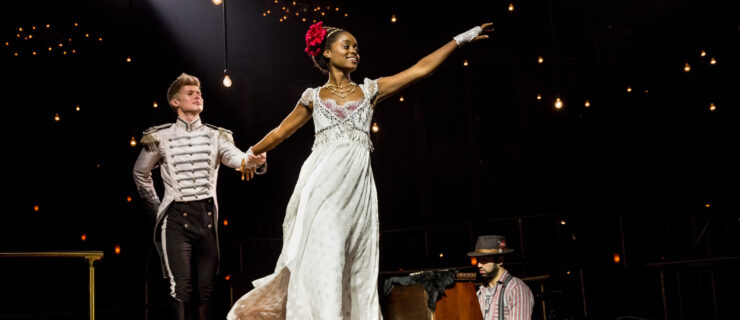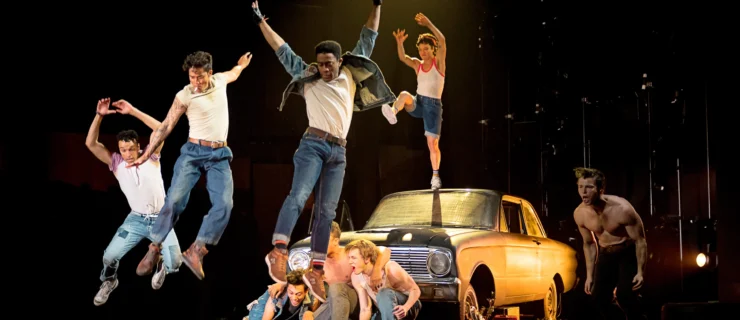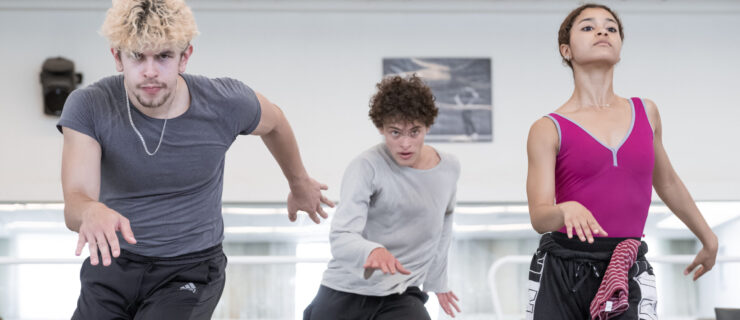"Reflections"
“Reflections”
Segerstrom Center for the Arts, Costa Mesa, CA
January 20–23, 2011
Reviewed by Victoria Looseleaf
Yekaterina Shipulina in Aszure Barton’s Dumka. Photo by Steve Dawson, courtesy Segerstrom Center.
Finally: a program with the girls out in force. Unfortunately, their force fields—no matter how magnetic—fizzled in the overly long (nearly three hours), unevenly paced program. Sure, there were fleeting moments of brilliance—both in choreography and technique—but they were in short supply.
Modeled after and produced by the same team as “Kings of Dance,” “Reflections” tried harnessing the estrogen power of seven Russian ballerinas trained at the Bolshoi Ballet Academy in custom-made works. And for those concerned about the dearth of female choreographers these days, this program had them in spades, or at least there was a trio of high-gloss gals: Aszure Barton, Lucinda Childs, and Karole Armitage.
Why, then, begin the concert with Nacho Duato’s reworked Remansos? Originally for a male trio, this rendering featured Anastasia Stashkevich, Yekaterina Krysanova (both Bolshoi soloists), and Olga Malinovskaya (Estonian National Ballet), partnered by three Bolshoi men—Denis Savin, Vyacheslav Lopatin, and Ivan Vasiliev, respectively. Pretty, yes. Deep, not exactly, though the feathery armwork and intense pliés made for some nice imagery, set to Alexey Melentiev playing the music of Enrique Granados, live.
After intermission (already?), the gorgeous, elastic-limbed Polina Semionova (Staatsballett Berlin), soared through Strauss Incontra Verdi, a 1995 work by Renato Zanella, adapted for the ballerina last year. Her body adorned in a glitzy pantsuit, Semionova pranced, turned, and leapt in neo-clown mode before wowing with a series of fouettés.
So much for the new. In any case, Barton’s Dumka had promise, featuring Bolshoi soloist Yekaterina Shipulina, moving dramatically to Tchaikovsky, her back fluid as rippling water one moment, her demeanor giddy the next. Too bad the short showcase, with lots of show but little to say, lacked cohesion. Childs’ Book of Harmony, featuring Malinovskaya making perpetual motion look easy, was in-your-face choreography that didn’t quite go the distance demanded by John Adams’ propulsive score.
With Armitage’s Fractus, a duet for Krysanova and Savin (to Rhys Chatham music), blackouts gave a feeling of urgency that complemented the tough-love partnering, including Savin spinning Krysanova upside-down. San Francisco Ballet’s Maria Kochetkova tackled Jorma Elo’s One Overture with grit, the classical vocabulary fragmenting into quasi-Moonwalking and shoulder-shimmying, while still maintaining hallmark Russian smoothness, enhanced by Mozart and Biber melodies.
Longtime partners Osipova and Vasiliev looked sharp in Bigonzetti’s Serenata, while the inexplicable inclusion of Balanchine’s 1955 Pas de Trois was nevertheless welcomed, with Shipulina, Semionova, and Alexander Volchkov displaying articulated footwork and stunning lines. As for Bigonzetti’s grand finale, Cinque, featuring all but Semionova and Malinovskaya, the femmes (though not quite fatales) cavorted on chairs with wigs and hanging tutus, their solos offering preening, backbending, and the occasional wrap-a-leg-around-the-neck trick. Alas, there was nothing earth-shattering, although the Vivaldi pieces, performed live, were sumptuous.
“Reflections,” a cool concept, is in need of a thoughtful makeover.
Thoughts on this review? Email your comments, questions, opinions to [email protected].




